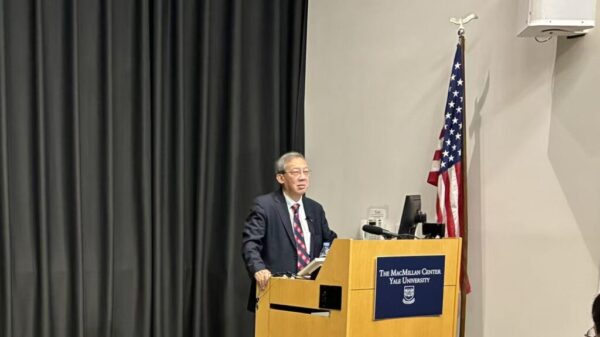As flu season approaches, health experts emphasize the importance of vaccinations for older adults, particularly those aged 60 and older. According to Dr. Chris Vercammen, a general internist and medical director at Remo Health, maintaining an up-to-date vaccination schedule is crucial to prevent severe illnesses in this vulnerable population. Here are the six most important vaccines that individuals in this age group should consider in the coming months.
Flu Vaccine: A Top Priority
The flu vaccine is deemed the “No. 1 most important vaccine” for everyone over six months old, especially for those over 50. Dr. Grant Fowler, chair of family medicine at the Burnett School of Medicine at Texas Christian University, highlights that last year saw a decline in vaccination rates, leading to approximately 27,000 flu-related deaths, primarily among individuals aged 65 and older.
Dr. Vercammen concurs, stating that older adults face a significantly higher risk of severe complications from the flu. He recommends receiving the flu vaccine annually, ideally by the end of October, and suggests either a high-dose or adjuvanted version for patients over 65. These formulations are designed to elicit a stronger immune response.
COVID-19 Vaccine: Staying Updated
Despite a decrease in severity compared to earlier years, COVID-19 remains a concern. Dr. Vercammen stresses the importance of staying current with COVID-19 vaccinations to prevent severe illness and hospitalization. The Centers for Disease Control and Prevention (CDC) recommends that individuals over 65 receive two doses of the updated COVID vaccine, spaced six months apart, particularly for those with additional risk factors.
Other Key Vaccines for Older Adults
The following vaccines are also critical for adults over 60:
– **TDAP Vaccine**: This vaccine protects against tetanus, diphtheria, and pertussis. Dr. Fowler notes that it only needs to be administered once every ten years, making it a convenient option. The recent uptick in pertussis cases highlights the importance of this vaccination, both for the elderly and for protecting vulnerable infants.
– **RSV Vaccine**: Recently introduced, this vaccine is recommended for individuals over 75, or those over 50 with risk factors such as chronic obstructive pulmonary disease (COPD) or heart disease. Dr. Vercammen advises considering this vaccine as early as age 60, depending on individual health assessments.
– **Pneumococcal Vaccines**: Dr. Vercammen strongly recommends pneumococcal vaccines for those aged 65 and older. These vaccines protect against serious diseases caused by the bacterium *Streptococcus pneumoniae*, including pneumonia and meningitis.
– **Shingles Vaccine**: Known as Shingrix, this vaccine is essential for those over 50 to prevent the painful condition caused by the herpes zoster virus. It is administered in a two-dose series and is highly effective at preventing shingles and its complications.
Additional Health Practices
In addition to vaccinations, older adults should adhere to general health and safety practices to maintain their well-being. These include:
– Regular handwashing and avoiding face touching
– Steering clear of crowded places during peak flu season
– Wearing masks in crowded settings during outbreaks
– Scheduling annual wellness evaluations with primary care providers
– Engaging in regular physical activity, such as walking or resistance training
– Limiting alcohol intake to one drink per day on average
– Undergoing hearing and vision evaluations to enhance social health and potentially mitigate dementia risks
– Following a balanced diet and striving for quality sleep
By prioritizing these vaccinations and health practices, older adults can significantly reduce their risk of serious health complications this flu season and beyond.




































































